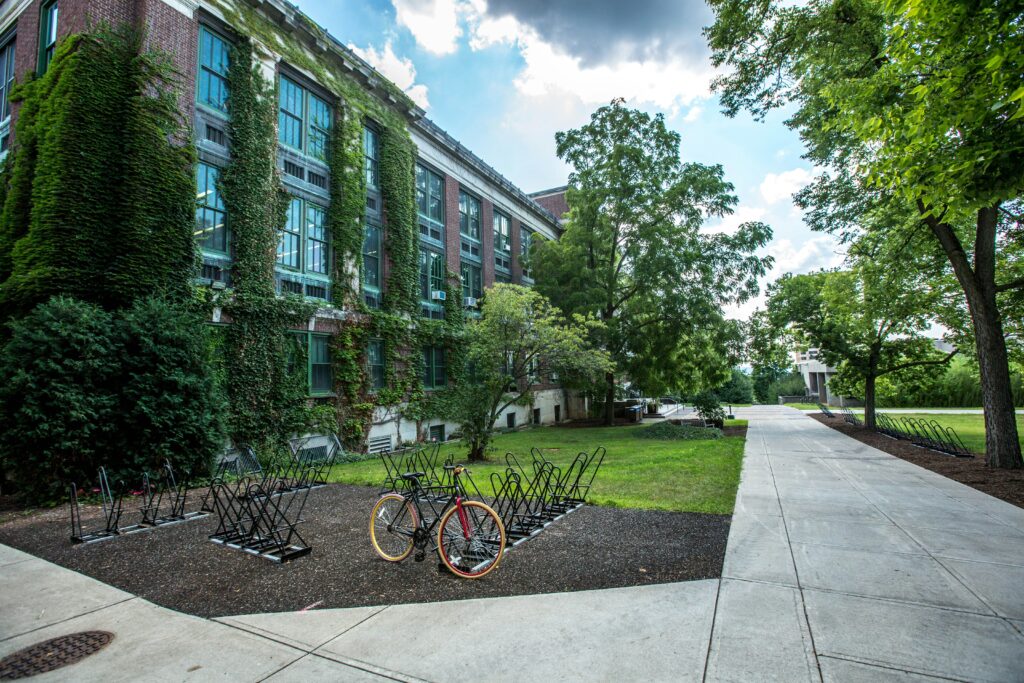Curriculum Overview: Key Components of the PYP Curriculum in Ontario IB Schools
If you’re considering the Primary Years Programme (PYP) for your child, you’re probably curious about what makes it so special. The PYP curriculum in Ontario IB schools is designed to foster an engaging, inquiry-based learning environment. Let’s dive into the key components that make up this exciting educational journey.
What is the PYP Curriculum?
The PYP curriculum is part of the International Baccalaureate (IB) continuum of education, catering to students aged 3 to 12. It aims to develop inquiring, knowledgeable, and caring young people. The PYP focuses on the development of the whole child as an inquirer, both in the classroom and in the world outside.
Six Transdisciplinary Themes
The PYP curriculum is organized around six transdisciplinary themes that guide the learning process. These themes are broad and provide a framework for exploring knowledge and skills in a holistic way. The themes are:
- Who We Are: This theme explores identity, beliefs, values, health, relationships, and what it means to be human. It’s all about understanding ourselves and our interactions with others.
- Where We Are in Place and Time: Students delve into history, geography, and the impact of individuals and civilizations over time. They learn about their place in the world and the legacies of the past.
- How We Express Ourselves: This theme focuses on the ways we discover and express ideas, feelings, nature, culture, beliefs, and values. It encourages creativity and communication.
- How the World Works: Here, students investigate the natural world and its laws, the interaction between the natural world and human societies, and how humans use their understanding of scientific principles.
- How We Organize Ourselves: This theme examines human-made systems and communities, organizational structures, economic activities, and their impact on humankind and the environment.
- Sharing the Planet: Students learn about rights and responsibilities in the struggle to share finite resources with other people and with other living things.
The Learner Profile
At the heart of the PYP are the IB Learner Profile attributes, which aim to develop students who are balanced, caring, communicators, inquirers, knowledgeable, open-minded, principled, reflective, risk-takers, and thinkers. These attributes are integrated into every aspect of the PYP curriculum to help shape well-rounded individuals.
Inquiry-Based Learning
Inquiry is the cornerstone of the PYP curriculum. It encourages students to ask questions, explore, and engage deeply with topics. This method helps them develop critical thinking and problem-solving skills. For instance, instead of simply learning about ecosystems, students might investigate how local wildlife adapts to changing environments, encouraging hands-on learning and real-world application.
Attitudes and Skills
The PYP also emphasizes the development of attitudes and skills that are essential for lifelong learning. These include thinking skills, social skills, communication skills, self-management skills, and research skills. These skills are integrated across all subjects and help students become effective learners and compassionate individuals.
Action and Service
Taking action is an integral part of the PYP curriculum. Students are encouraged to take their learning beyond the classroom and engage in meaningful actions that have a positive impact on their communities and the world. This could involve projects like organizing a recycling program at school or participating in community service activities.
Assessment in the PYP
Assessment in the PYP is varied and ongoing. It includes formative assessments, which help guide learning, and summative assessments, which evaluate student understanding at the end of a learning period. These assessments are designed to provide feedback to students, parents, and teachers about the student’s progress and areas for improvement.
The PYP Exhibition
A unique feature of the PYP is the PYP Exhibition, which takes place in the final year of the program. This is a significant project where students conduct an in-depth inquiry into a real-life issue or topic of interest. The Exhibition allows students to demonstrate the attributes of the IB Learner Profile and the skills they have developed throughout the program. It is a celebration of their learning journey and a showcase of their knowledge and skills.

Developmental Benefits: How the PYP Supports Early Childhood Development in IB Schools in Ontario
If you’re a parent considering the International Baccalaureate (IB) Primary Years Programme (PYP) for your child, you might wonder how it benefits early childhood development. The PYP curriculum is designed to nurture young learners in various ways, promoting holistic growth. Let’s dive into the developmental benefits of the PYP in IB schools in Ontario.
Fostering Curiosity and Inquiry
One of the standout features of the PYP is its focus on inquiry-based learning. This approach encourages children to ask questions, explore, and engage deeply with topics. By fostering curiosity, the PYP helps children develop a love for learning that lasts a lifetime. When kids are excited about discovering new things, they are more likely to stay engaged and retain information.
For example, instead of just learning about plants, children might investigate how plants grow and what they need to thrive. This hands-on approach not only makes learning fun but also helps children develop critical thinking and problem-solving skills from an early age.
Building Social Skills
The PYP places a strong emphasis on social interactions and collaboration. Children are often grouped together for various activities, encouraging them to work as a team. This teamwork fosters essential social skills such as communication, empathy, and conflict resolution. By working together, children learn to appreciate different perspectives and develop a sense of community.
In Ontario IB schools, children might participate in group projects where they have to present their findings to the class. These activities build confidence and help children become effective communicators, a skill that will benefit them throughout their lives.
Encouraging Emotional Development
Emotional development is a critical aspect of early childhood education, and the PYP excels in this area. The curriculum includes activities that promote self-awareness and emotional regulation. Children learn to recognize their emotions and understand how to manage them effectively. This emotional intelligence is crucial for personal development and building healthy relationships.
For instance, through role-playing activities and discussions, children learn how to express their feelings in a constructive manner. They also practice empathy by considering how their actions affect others, fostering a caring and supportive classroom environment.
Promoting Physical Development
Physical development is not overlooked in the PYP. The program includes various activities that promote gross and fine motor skills. From outdoor play to art and craft projects, children engage in activities that help them develop physically. Regular physical activity is essential for healthy growth and development, and the PYP ensures that children get plenty of opportunities to move and play.
In Ontario IB schools, you might find children participating in physical education classes that emphasize not only fitness but also teamwork and cooperation. These activities help children build strong bodies and develop a lifelong appreciation for physical activity.
Integrating Transdisciplinary Learning
The PYP curriculum is organized around six transdisciplinary themes, which integrate multiple subjects into a cohesive learning experience. This approach helps children see connections between different areas of knowledge and apply their learning in real-world contexts. By understanding how subjects interrelate, children develop a more comprehensive view of the world.
For example, a unit on “How the World Works” might combine science, math, and social studies to explore environmental issues. This holistic approach encourages children to think critically and understand the broader implications of their learning.
Nurturing Creativity and Imagination
Creativity and imagination are highly valued in the PYP. The curriculum includes various activities that encourage children to express themselves creatively. Whether through art, music, drama, or creative writing, children have numerous opportunities to explore their imaginations and develop their creative skills.
In Ontario IB schools, you might see children working on art projects that reflect their understanding of a particular theme or concept. These activities not only enhance creative thinking but also allow children to communicate their ideas in unique and personal ways.
Supporting Individual Learning Styles
Every child is unique, and the PYP recognizes this by supporting individual learning styles. The curriculum is designed to be flexible and adaptable, allowing teachers to tailor their instruction to meet the needs of each child. This personalized approach ensures that all children can succeed and thrive in their learning environment.
In Ontario IB schools, teachers might use a variety of teaching methods to accommodate different learning preferences. For instance, some children might learn best through hands-on activities, while others might prefer visual aids or storytelling. By catering to these diverse learning styles, the PYP helps all children achieve their full potential.

Local Ontario Schools: List of Ontario Schools Offering the PYP
Choosing the right school for your child is a significant decision, especially when you’re considering the International Baccalaureate (IB) Primary Years Programme (PYP). Fortunately, Ontario boasts a range of schools that offer the PYP, ensuring your child receives a world-class education from an early age. Let’s explore some of the notable Ontario schools where the PYP is available.
Toronto’s Top PYP Schools
Toronto, being the largest city in Ontario, offers several excellent options for PYP education. If you live in the GTA, you have access to some top-notch institutions. For example, Branksome Hall is a prestigious all-girls school that provides the PYP. Known for its robust academic curriculum and supportive environment, Branksome Hall ensures each student thrives both academically and personally.
Another fantastic option is Upper Canada College (UCC). UCC is one of the oldest and most respected boys’ schools in the country. They offer the PYP with a strong emphasis on developing critical thinking and inquiry-based learning. Your son will benefit from a well-rounded education that prepares him for future academic challenges.
PYP Schools in Ottawa
Ottawa, the capital city of Canada, also has excellent schools offering the PYP. Elmwood School, an independent day school for girls, integrates the PYP into its rich academic programs. Elmwood is known for fostering a supportive and inclusive community, helping girls to excel academically and socially.
St. John’s International School is another prominent institution offering the PYP in Ottawa. This co-educational school focuses on creating a nurturing environment where students can explore and develop their interests across a broad curriculum. St. John’s commitment to holistic education makes it a great choice for parents seeking an IB education for their children.
Mississauga’s Leading PYP Schools
Mississauga, part of the Greater Toronto Area, has several schools that stand out for their PYP programs. Lynn-Rose Heights Private School offers a comprehensive PYP curriculum that emphasizes inquiry-based learning and student-centered teaching. The school’s approach ensures that students are engaged and motivated to learn, setting a strong foundation for future academic success.
Another excellent choice in Mississauga is Rotherglen School. Rotherglen provides a nurturing environment where students are encouraged to explore their interests and develop a love for learning. Their PYP program focuses on developing critical thinking and problem-solving skills, which are essential for lifelong learning.
Hamilton and Surrounding Areas
If you’re based in Hamilton or its surrounding areas, there are quality PYP schools to consider. Hillfield Strathallan College is a co-educational independent school offering the PYP. They focus on creating a balanced educational experience that includes academics, arts, and athletics. This holistic approach ensures students receive a well-rounded education.
The Hamilton-Wentworth District School Board also offers the PYP in several of its schools, making it accessible for families looking for public school options. Schools like Prince Philip Elementary School provide the PYP, ensuring a diverse and inclusive environment where all students can thrive.
London’s Top PYP Institutions
London, Ontario, is home to several institutions that provide the PYP. Matthews Hall, an independent school in London, offers a strong PYP curriculum. Matthews Hall is known for its commitment to fostering a love for learning and developing the whole child. The school’s small class sizes ensure personalized attention and a supportive learning environment.
Another notable school in London is St. George’s School of Montreal, which provides the PYP with a focus on inquiry and exploration. The school’s innovative approach to education encourages students to become independent thinkers and lifelong learners.

Parental Involvement: Tips for Supporting Your Child in the PYP IB School in Ontario
As a parent, your involvement in your child’s education can make a significant difference in their academic success and overall development. The International Baccalaureate (IB) Primary Years Programme (PYP) offered in Ontario is no exception. This program encourages active learning and critical thinking, and your support can enhance your child’s experience. Here are some tips to help you get involved and support your child effectively.
Understand the PYP Framework
To support your child, it’s essential to understand the PYP framework. This program focuses on developing the whole child through inquiry-based learning. You don’t need to be an expert, but having a basic understanding of the core components will help you guide your child. Attend school information sessions, read the school’s PYP documentation, and explore online resources. The more you know, the better you can support your child’s learning journey.
Create a Learning-Friendly Environment
A supportive home environment can significantly impact your child’s learning. Designate a quiet, clutter-free space where your child can focus on their studies. Ensure they have the necessary supplies, such as stationery, a comfortable chair, and good lighting. Encouraging regular study habits and a consistent routine can also help your child stay organized and motivated. Remember, a well-organized space can make studying more enjoyable and effective.
Foster a Love for Inquiry
The PYP emphasizes inquiry-based learning, which encourages students to ask questions and explore topics deeply. You can nurture this curiosity at home by engaging in discussions about various subjects. Ask open-ended questions that prompt your child to think critically and explore different perspectives. For example, if your child is learning about the environment, discuss how your family can contribute to sustainability. Encouraging curiosity and a love for learning will help your child thrive in the PYP.
Stay Connected with Teachers
Maintaining open communication with your child’s teachers is crucial. Attend parent-teacher meetings, read school newsletters, and don’t hesitate to reach out with any questions or concerns. Teachers can provide valuable insights into your child’s progress and offer suggestions on how you can support their learning at home. Building a strong partnership with teachers ensures that you are well-informed and involved in your child’s education.
Encourage Extracurricular Activities
The PYP isn’t just about academics; it also focuses on developing well-rounded individuals. Encourage your child to participate in extracurricular activities, such as sports, arts, and community service. These activities help build social skills, confidence, and a sense of responsibility. Plus, they provide opportunities for your child to explore their interests and talents. Supporting your child in pursuing these activities shows that you value their overall development.
Support Emotional Well-being
Your child’s emotional well-being is just as important as their academic success. The PYP promotes a balanced approach to education, emphasizing the importance of emotional health. Encourage open communication at home, allowing your child to express their feelings and concerns. Teach them coping strategies for managing stress and anxiety, such as mindfulness or deep breathing exercises. A supportive and understanding home environment can help your child feel secure and confident.
Get Involved in the School Community
Being an active part of the school community can enhance your child’s educational experience. Volunteer for school events, join the parent-teacher association, or participate in school fundraisers. These activities provide opportunities to connect with other parents, share experiences, and support the school. Plus, your involvement shows your child that you value their education and are committed to their school community.
Celebrate Achievements
Recognizing and celebrating your child’s achievements, no matter how small, can boost their motivation and confidence. Whether it’s a good grade, a completed project, or improvement in a specific area, celebrate their efforts. Positive reinforcement encourages a growth mindset, helping your child understand that effort and perseverance lead to success. Celebrating achievements also reinforces the idea that you are proud of their hard work and dedication.
Conclusion
Supporting your child in the PYP IB program in Ontario requires understanding the program, creating a conducive learning environment, and fostering a love for inquiry. Staying connected with teachers, encouraging extracurricular activities, and supporting emotional well-being are also crucial. By being an active participant in the school community and celebrating your child’s achievements, you can enhance their educational experience and set them up for success. Your involvement makes a significant difference in their academic journey and overall development.



